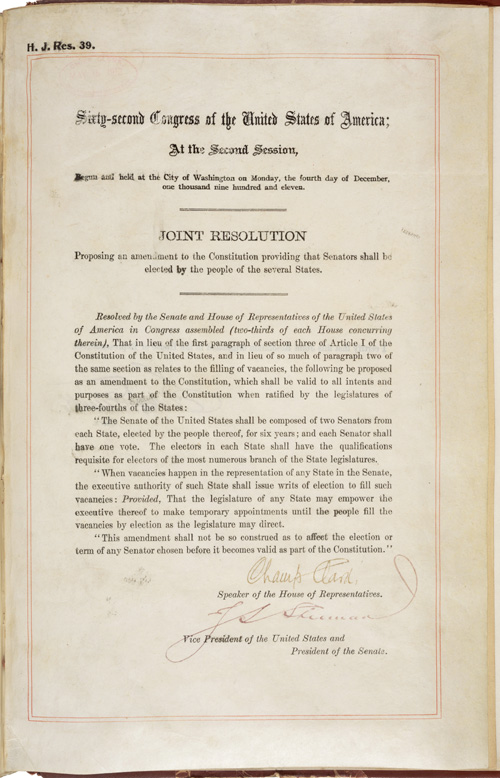Amendment, in legislation, is a change in a law, or in a bill before it becomes a law. Bills often have amendments attached before a legislature votes on them.

Amendments to the Constitution of the United States may be proposed in two ways:
(1) If two-thirds of both houses approve, Congress may propose an amendment. The amendment becomes a law when ratified either by legislatures or by conventions in three-fourths of the states.
(2) If the legislatures of two-thirds of the states ask for an amendment, Congress must call a convention to propose it. The amendment becomes a law when ratified either by the legislatures or by conventions in three-fourths of the states. This method has never been used.
For the text of amendments to the U.S. Constitution, see Constitution of the United States.
See also Parliamentary procedure.
